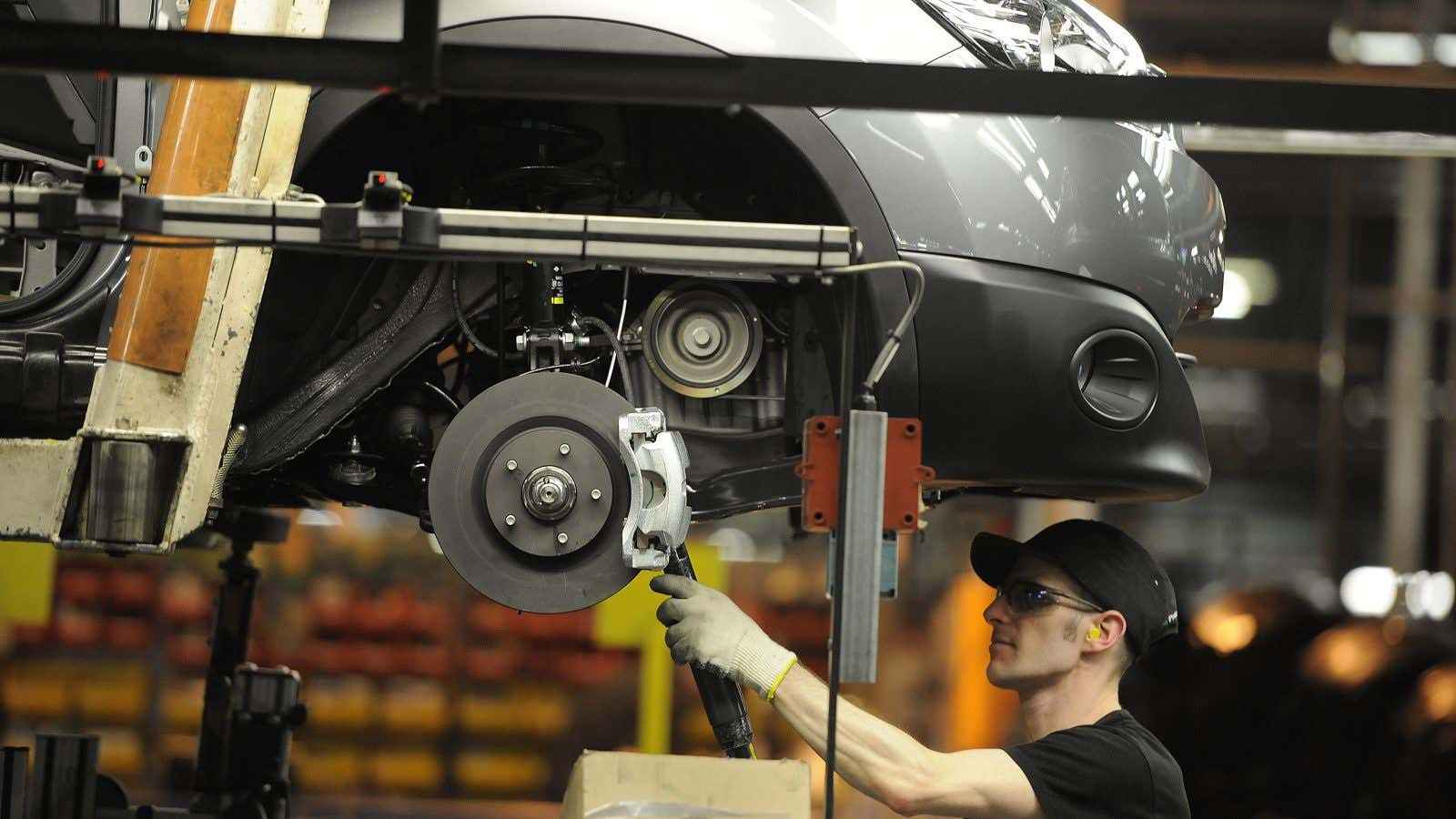Japan saw the UK as “a gateway to Europe,” according to a government report released today. Now it wants to know whether or not the gate is swinging shut.
In the report, released today (Sept. 4) at the start of the G20 meeting of leaders in Hangzhou, China, a Japanese government task-force delivered a warning to the UK, and the block it voted to leave. The 15-pages (pdf) are titled ‘Japan’s Message to the United Kingdom and the European Union,’ and make clear that Japanese companies want clarity, and they want it quickly.
“Uncertainty is a major concern for an economy; it evokes a sense of anxiety, causing volatility in markets, and results in the contraction of trade, investment and credit,” the report’s authors write.
“What Japanese businesses in Europe most wish to avoid is the situation in which that they are unable to discern clearly the way the BREXIT negotiations are going, only grasping the whole picture at the last minute.”
Japan has a lot of skin in the Brexit game. Nearly half of Japan’s EU investment flowed into the UK in 2015, the report says. Nissan, a car company, has its European design and research departments in the UK. Nomura, an investment bank, has its European headquarters in London and other financial firms. Honda, Mitsubish, and Daiwa all have operations in the country.
The government message includes detailed requests from companies in the automotive, pharmaceutical, and banking sectors. They want to be sure that workers will remain available both now and in the future, that parts and finished cars will not be taxed twice, that skilled bankers will have freedom of movement, and that drugs regulation will not be destabilized.
If negotiations don’t lead to satisfactory decisions, the businesses could leave, the message says. The authors note that “a number of Japanese businesses, invited by the Government in some cases, have invested actively to the UK, which was seen to be a gateway to Europe, and have established value-chains across Europe,” going on to “strongly request” that the UK consider Japanese interests in its decision-making.
Theresa May, the UK’s new prime minister who came to power after the Brexit vote, will have a lot of worries to salve in her upcoming meetings.
